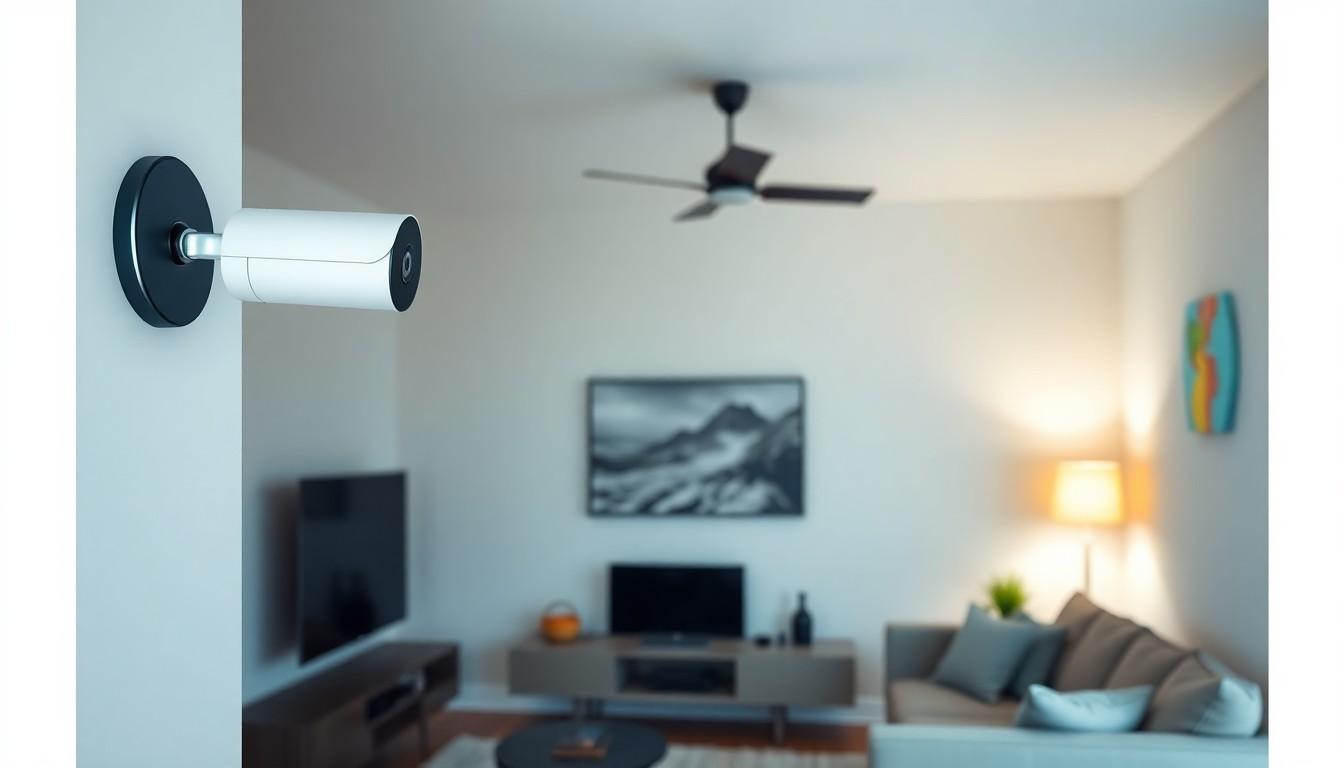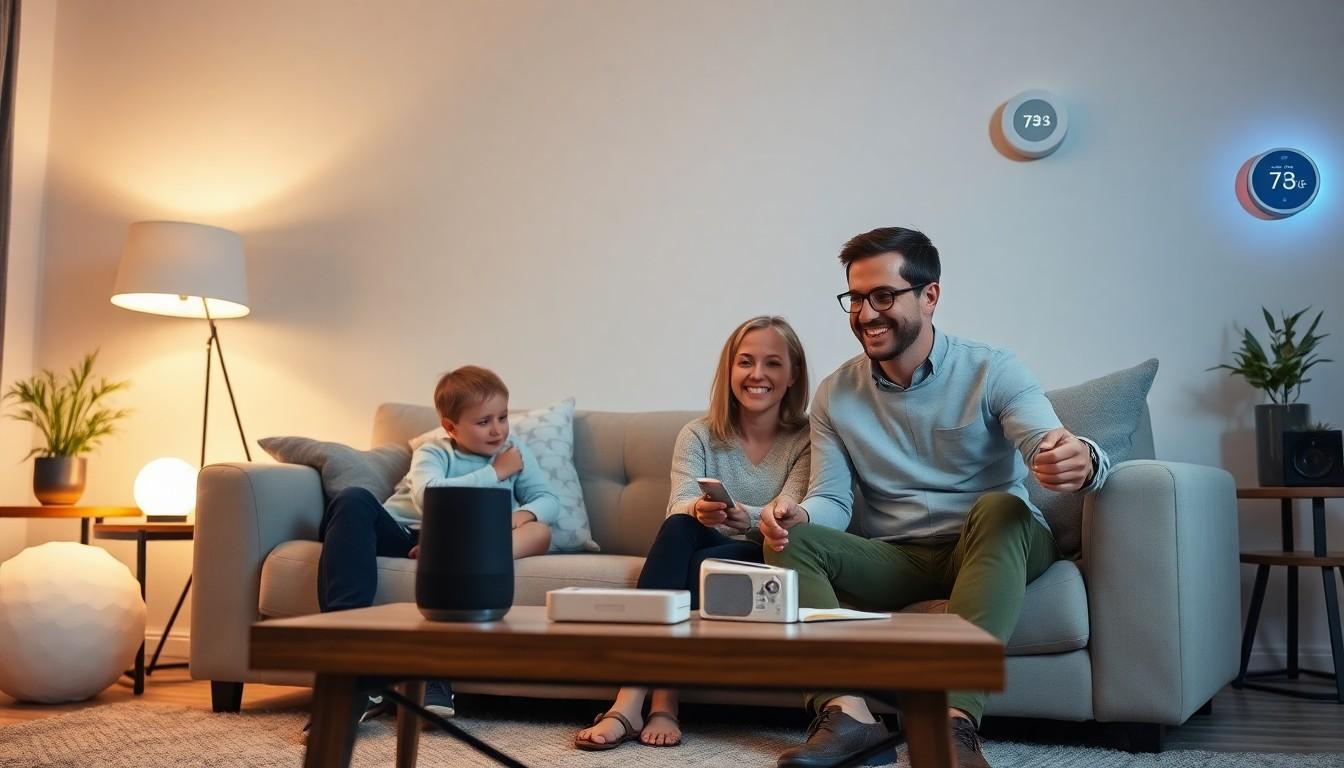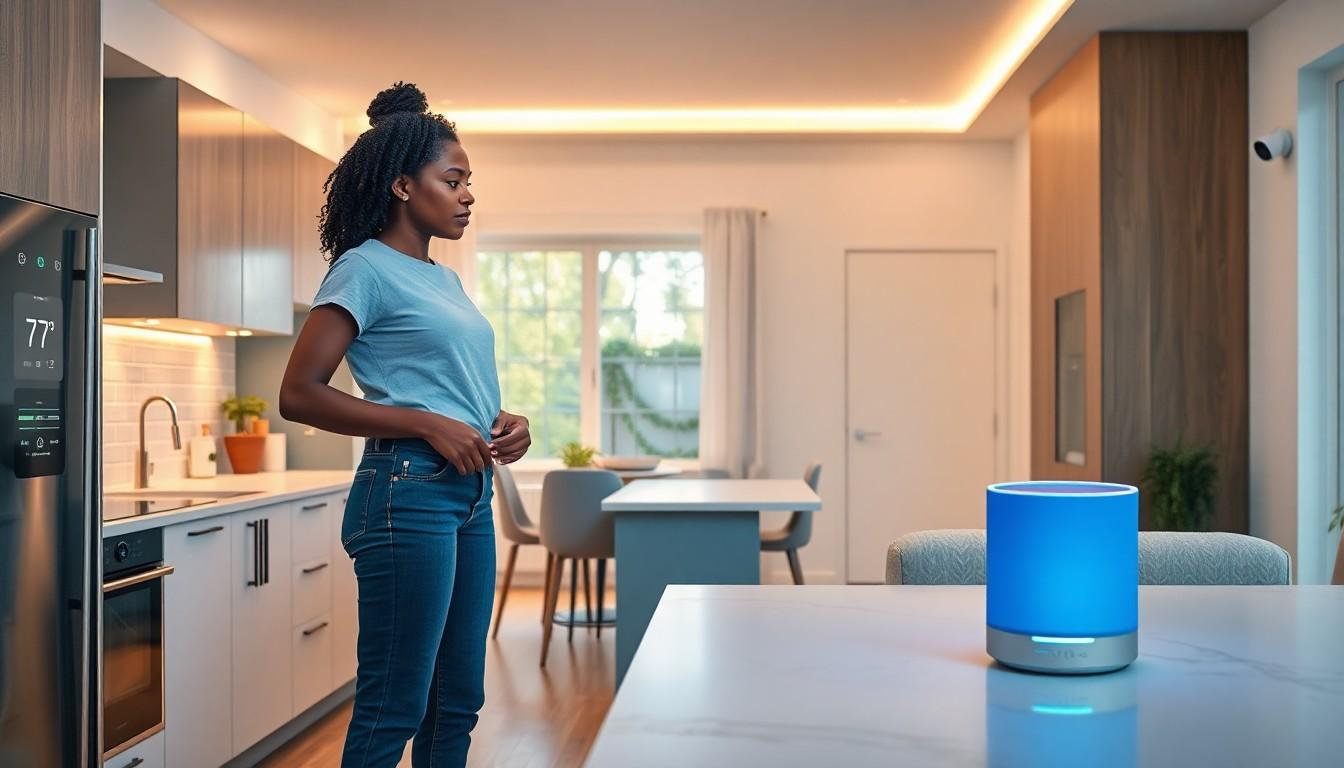Imagine walking into your home and having the lights adjust, the thermostat set to your perfect temperature, and your favorite playlist serenading you—all without lifting a finger. Welcome to the world of smart home devices, where convenience meets innovation in the most delightful way. These gadgets aren’t just for tech enthusiasts; they’re for anyone who wants to turn their home into a personal assistant that doesn’t complain about the laundry.
From voice-activated assistants that respond to your every whim to security systems that keep an eye on things while you kick back, smart home devices are revolutionizing how we live. They promise to simplify daily tasks and add a sprinkle of fun to mundane routines. So, if you’re ready to embrace the future and make your home a little smarter (and a lot cooler), let’s dive into the fascinating realm of smart home technology.
Table of Contents
ToggleOverview of Smart Home Devices
Smart home devices encompass a wide range of gadgets designed to enhance home efficiency, convenience, and security. These connected devices integrate seamlessly with homeowners’ lifestyles, allowing for remote control and automation of various tasks. Smart speakers, such as Amazon Echo and Google Nest, serve as central hubs, enabling users to manage other devices through voice commands.
Lighting systems, like Philips Hue, provide customizable illumination, adjusting brightness and color based on preferences. Thermostats, such as Nest Learning Thermostat, learn user behaviors and automatically optimize heating and cooling to save energy. These temperature regulation systems not only enhance comfort but also reduce utility costs.
Security cameras and smart locks enhance home safety. Brands like Ring and August offer systems that allow real-time monitoring and secure entry options. Homeowners receive alerts on their smartphones when motion is detected or when doors are unlatched.
Smart appliances, such as refrigerators, ovens, and washing machines, reshape daily tasks. Connected kitchen gadgets enable users to preheat ovens remotely or receive notifications when groceries run low. These innovations simplify meal preparations and promote efficient household management.
Energy efficiency is another benefit of smart home devices. Smart plugs and energy monitors track energy usage, providing insights that encourage users to conserve energy. Homeowners can schedule devices to operate during off-peak hours, ultimately reducing their carbon footprint.
Adopting smart home devices contributes to a more streamlined and enjoyable living experience. They integrate cutting-edge technology to meet everyday needs, proving that innovation is accessible to everyone.
Types of Smart Home Devices

Smart home devices come in various categories, each fulfilling specific roles in enhancing home functionality and security. Below are some of the most prevalent types of smart home devices.
Smart Security Systems
Smart security systems combine cameras, motion sensors, and alarms to offer comprehensive home protection. Brands like Ring and Arlo enable real-time video monitoring accessible via smartphones. These systems send alerts when unusual activity occurs, ensuring homeowners stay informed anytime. Smart locks enhance this security, allowing keyless entry and remote locking. Users can grant access to visitors even when they are away. Overall, smart security systems provide peace of mind by fortifying home safety effortlessly.
Smart Lighting Solutions
Smart lighting solutions improve both convenience and energy efficiency. Philips Hue and LIFX are leading brands that offer customizable color options and adjustable brightness. Users can control lighting through smartphone applications or voice commands via smart speakers. Automation features allow lights to turn on or off at scheduled times, contributing to energy savings. Additionally, sensors detect movement and adjust lighting accordingly, creating a welcoming atmosphere. Smart lighting enhances both the aesthetic appeal and functionality of living spaces.
Smart Thermostats
Smart thermostats optimize home climate control while conserving energy. The Nest Learning Thermostat and Ecobee offer features such as remote scheduling and temperature adjustments. Algorithms learn user preferences, automatically adapting settings for maximum comfort and efficiency. Homeowners can monitor energy usage in real-time, which leads to informed decisions about heating and cooling. Integration with other smart devices enhances overall home management. These thermostats contribute significantly to reduced utility costs while ensuring comfort throughout the house.
Benefits of Smart Home Devices
Smart home devices offer various advantages that enhance daily living. These gadgets streamline interactions within the home, making life easier and more secure.
Increased Convenience
Smart home devices significantly improve convenience. Automated lighting allows users to adjust brightness with a voice command or a smartphone app, eliminating the need for manual switches. Smart speakers serve as control hubs, managing multiple devices without physical buttons. Additionally, smart appliances, like refrigerators, notify users when groceries run low, making shopping effortless. Hands-free operation enables a more enjoyable home experience, allowing multitasking without interruption. Each room can become distinctly customized according to individual preferences, providing seamless routines.
Enhanced Security
Enhanced security is one of the most valuable benefits of smart home devices. Smart security systems, equipped with cameras and motion sensors, offer real-time alerts on any unusual activity. Homeowners can monitor their properties remotely through mobile apps, ensuring peace of mind even when away. Smart locks provide keyless entry options, allowing trusted visitors access without physical keys. Additionally, integration with security alarms can prompt immediate notifications during breaches, enabling quick responses. Constant monitoring and remote accessibility contribute to a safer home environment.
Energy Efficiency
Energy efficiency improves dramatically with smart home technology. Smart thermostats learn user behavior to optimize heating and cooling, resulting in reduced energy expenses. Users can adjust settings from anywhere, ensuring energy isn’t wasted when no one is home. Smart plugs monitor and manage energy consumption, allowing individuals to track usage patterns and identify waste. Integrating these devices translates to significant reductions in utility bills over time. Overall, adopting energy-efficient smart home devices plays a crucial role in promoting sustainability while saving money.
Challenges and Considerations
Smart home devices present unique challenges that users should consider for optimal experience and security. Understanding these issues can help users make informed decisions.
Compatibility Issues
Compatibility remains a significant hurdle for many, as not all smart devices communicate effectively with each other. Specific platforms, like Apple HomeKit, may limit options compared to more flexible ecosystems like Amazon Alexa or Google Assistant. Users often encounter difficulties when integrating devices from different manufacturers, leading to frustrations with functionality. Updates to devices can also create mismatches, resulting in disrupted automation. Checking compatibility before making purchases is crucial to prevent these issues.
Privacy Concerns
Privacy concerns frequently arise with smart home technology. Devices like smart speakers and cameras constantly collect data, which can lead to potential breaches. Users must navigate the risks associated with data sharing, particularly regarding sensitive information. Unauthorized access to home networks can result in significant security vulnerabilities. Adjusting privacy settings and being aware of data policies is essential for maintaining security. Regularly monitoring updates and device permissions helps safeguard personal information while using smart home devices.
Future Trends in Smart Home Technology
Emerging trends in smart home technology shape the future of residential living. Artificial intelligence integration enhances device interactivity. Devices learn user preferences, optimizing daily routines and management tasks. Voice-activated assistants become more sophisticated and capable of complex interactions.
Energy management systems gain prominence in smart homes. Homeowners benefit from tools that monitor and control energy consumption efficiently. Solar panels paired with smart home systems contribute to sustainability and eco-friendliness. Many individuals seek solutions that reduce their carbon footprint while maintaining comfort.
Interconnectivity and interoperability stand out among critical trends. Homeowners increasingly expect devices from different manufacturers to work seamlessly together. Industry players focus on establishing universal standards, fostering compatibility across smart home ecosystems. This encourages users to expand their smart device collections without concerns about integration problems.
Increased emphasis on security precedes other advancements. Manufacturers prioritize user data protection within smart home devices. Secure connectivity methods, such as blockchain technology, find applications in protecting user privacy. Future devices incorporate robust encryption and secure authentication features, reassuring users.
Voice recognition evolves into a more secure and personalized experience. Smart speakers analyze vocal patterns to distinguish among family members, tailoring responses based on individual preferences. Personalization enhances user interaction and convenience.
Finally, augmented reality enhances the user experience. Smart home applications utilize AR for visualizing device settings and monitoring energy consumption in real time. This immersive approach allows users to manage their environments more intuitively and interactively. With these advancements, the future of smart home technology holds exciting possibilities.
Smart home devices are transforming everyday living by offering convenience and efficiency. These gadgets not only simplify daily tasks but also enhance security and energy management. As technology continues to evolve, the integration of AI and improved interconnectivity will further enhance user experiences.
However, potential challenges like compatibility issues and privacy concerns require careful consideration. By staying informed and making thoughtful choices, homeowners can fully enjoy the benefits of smart home technology. Embracing these innovations leads to a more streamlined and enjoyable living environment, making smart homes a valuable investment for the future.







